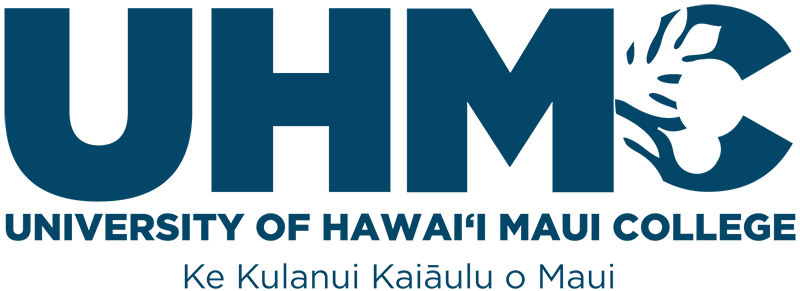Request Guidelines and Fund Proposal Form
Menu
Student Tech Fee Guidelines
– Please read before submitting a Fund Proposal
(From University Of Hawaii Board Of Regents authorizing memo)
Revenues derived from the technology fee are intended to augment funds already expended for instructional technology and technology infrastructure. Technology fee revenues are not to be used to supplant or replace current or future budgets, fund-raising efforts or other income sources for technology support and projects.
Authorized Uses of Technology Fee
- Purchase, lease, and maintenance of computer hardware, software, and peripherals. Resources acquired must be routinely available to multiple students in campus public or departmental laboratories or must be a shared resource such as a server or shared resource computer that provides service to, or supports, lab computers, student-owned computers, or student users. Examples include computer hardware, hardware upgrades, application software, software upgrades, licenses, scanners, plotters, laser printers, interface electronics for special needs, color printers, furniture for computer labs, classrooms, backup units, utility and support hardware and software.
- Purchase, lease, and maintenance of central or departmental resources that provide, support, or protect access to the campus network from student-owned computers. Examples are modems, terminal adaptors, terminal servers, telephone lines, cable connections network interfaces, routers, bridges, network wiring, diagnostic hardware/software, security software, security systems.
- Purchase, lease, and maintenance of instructional technology that substantively improves the learning environment for students. Examples: Digital cameras, computer projection systems, videoconferencing equipment, library technology, electronic subscriptions, electronic classroom technology.
Prohibited Uses of Technology Fee
- Purchase, lease, or maintenance of equipment and software not directly used to benefit students. This includes specialized resources primarily used by faculty or only infrequently used by students, computer systems primarily intended to support or conduct administrative business for the institution, and any equipment to be located in the office or on the desk of any individual faculty, staff, administrator, student, etc.
- Purchase, lease, or maintenance of equipment primarily intended to support research projects or activities, or grants.
- Purchase, lease, or maintenance of miscellaneous items such as: general furniture for offices or classrooms, office supplies, remodeling, travel, photocopying.
How are proposals assessed and approved or disapproved?
The Tech Fee typically meets at least once a semester (Fall and Spring semesters). More meetings may take place in a semester if needed. Each proposal submitted is reviewed by the committee during the meetings to ensure they meet proposal requirements outlined in the Tech Fee Charter (summarized above). If the proposal meets the requirements, the committee will then assess and assign a “tier” to the request. The committee devised the tiering system to provide a framework which sets a priority for review and approval based guidelines set forth in the Tech Fee Charter. There are four tiers defined by following:
- Tier 1 – Requests which include hardware and/or software purchases, to be used in general student labs for the general benefit of all students. A classroom lab is defined as a classroom with computer systems for each student. A student lab is a room with multiple computers, for open student use.
- Tier 2 – Department Classroom Lab hardware or software. It is encouraged that departments utilise department funds to make these types of purchases.
- Tier 3 – Any other request which does not fall under tier 1 classification.
- Tier Exceptions – From time to time we acknowledge a unique situation will arise in which the tiered system will not address a special or urgent need. In these circumstances, a majority of the committee can nominate a proposal for a tier exception. Proposals categorized as such must be accompanied by a written statement to justify the special or urgent need. Tier exceptions may be purchased immediately.
This process is repeated until all submitted proposals have been reviewed.
In the final stage of the process each committee member is provided the opportunity vote and approve, disapprove or abstain each proposal. This vote is carried out via an online system and allowing voting for several days to allow all committee members to vote.
Submission Deadlines for Proposals
We will accept proposals up to 1 month after the start of the Fall and Spring semesters. You may view the UHMC Academic Calendars here. The committee will then meet two weeks after the deadline submission to discuss all proposals submitted. We would then bring the proposals to vote the following week.
To Submit a Proposal for Funds:
If you feel your request meets the above purposes and falls within all guidelines, please try our online beta form here:
If you have trouble using our online form, a form fill-able Word Document can be downloaded here:
To submit the form, fill out the form on your computer. Save the completed form, and email it as an attachment to
